In 1926, the Fort Worth Star-Telegram became enthralled by the tale of “Old Blackie,” a large West Texas wolf that was infamous in her day. The jet black female was accused of killing $30,000 worth of livestock as well as two trappers. She had a $500 bounty on her head that attracted hunters from across the state. Her mate was killed in 1925, but she continued to outsmart trappers with her grown pup for another year across her 450-mile range.
The sad story ends with “Old Blackie” being lured into a trap using her captured offspring. W.I. Evans, the man that finally succeeded in claiming the bounty, took her on a tour of North Texas (reported in Cisco and Vernon, Texas) before selling her to a zoo.
Evans likely hyped up the legend to the press on his tour, so it’s hard to tell how accurate this story is. Livestock losses probably happened, but the scale of kills in old reports is often exaggerated to frame predators as “murderous” and stir up negative sentiments. From the article it sounds as if this was a relatively small pack that had already been decimated by trapping.
To add insult to injury, a week later the Star-Telegram posted an editorial piece that used the story of “Old Blackie” as a critique of femininity. The article is painful to read, but the full text is included at the bottom of this post. Here is a taste (emphasis mine):
“Old Blackie” is nothing but a gigantic lobo wolf, but she is of the eternal feminine. She was “more deadly than the male” just as Kipling said she should be. But when cunning was applied to her ancient mother instinct she succumbed. The call of generations was greater than her combined fear and wisdom. When she heard the cry of her captured whelp she responded. For answering that ancient call she will be part of a zoological exhibit for the remainder of her natural life. She will never be pardoned. She made the mistake of the wild and refused to become domesticated. For that oversight the hand of man is against her and her species and she and they are doomed. But it took a play on her ancient heritage to bring it about. They didn’t capture “Old Blackie.” They tricked motherhood.
In the early 20th century, both the wild and the feminine were heavily oppressed. Hopefully we can read this story today with new eyes and find a hero in “Old Blackie”.

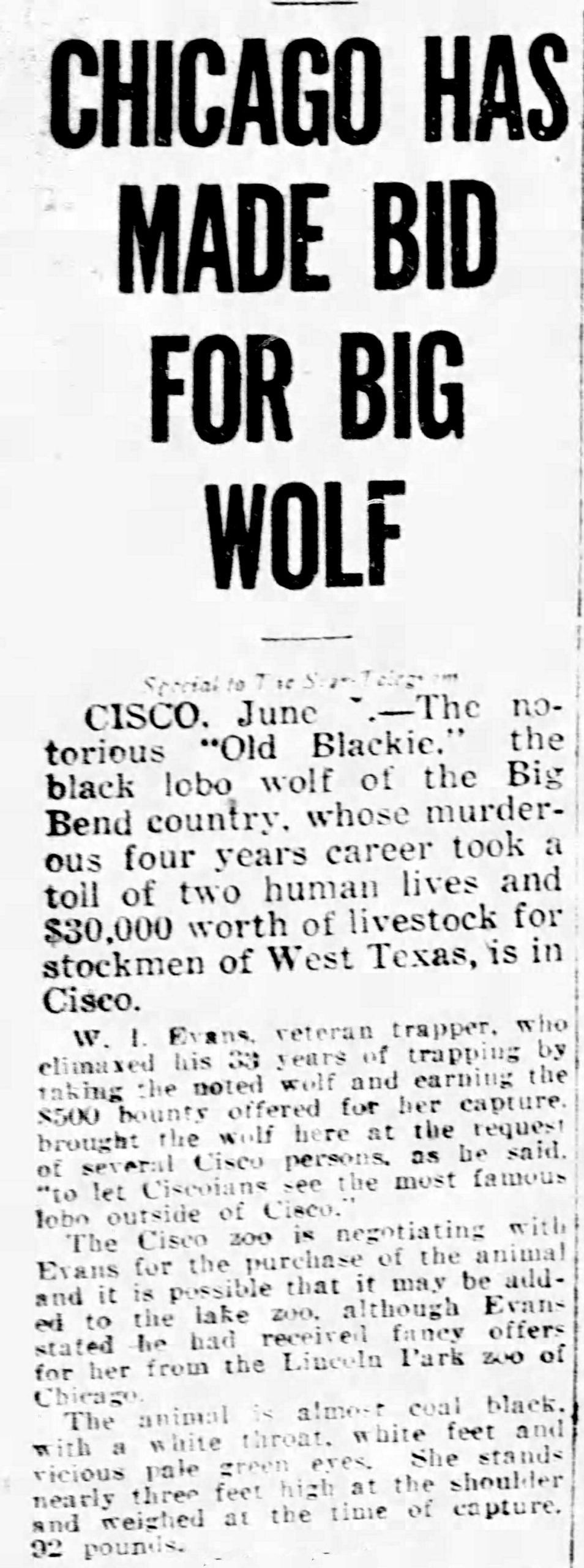
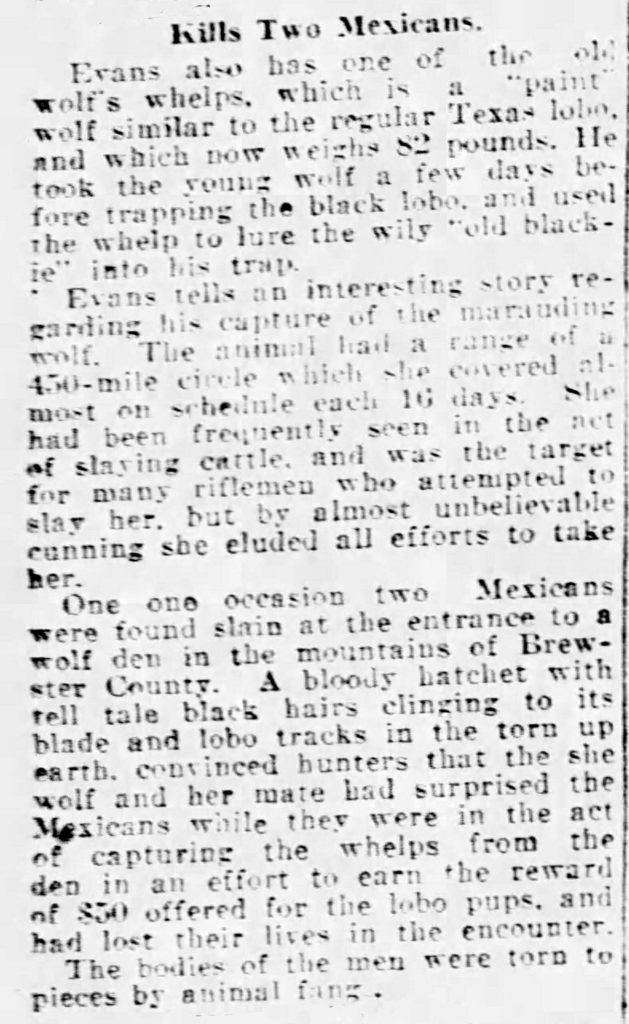
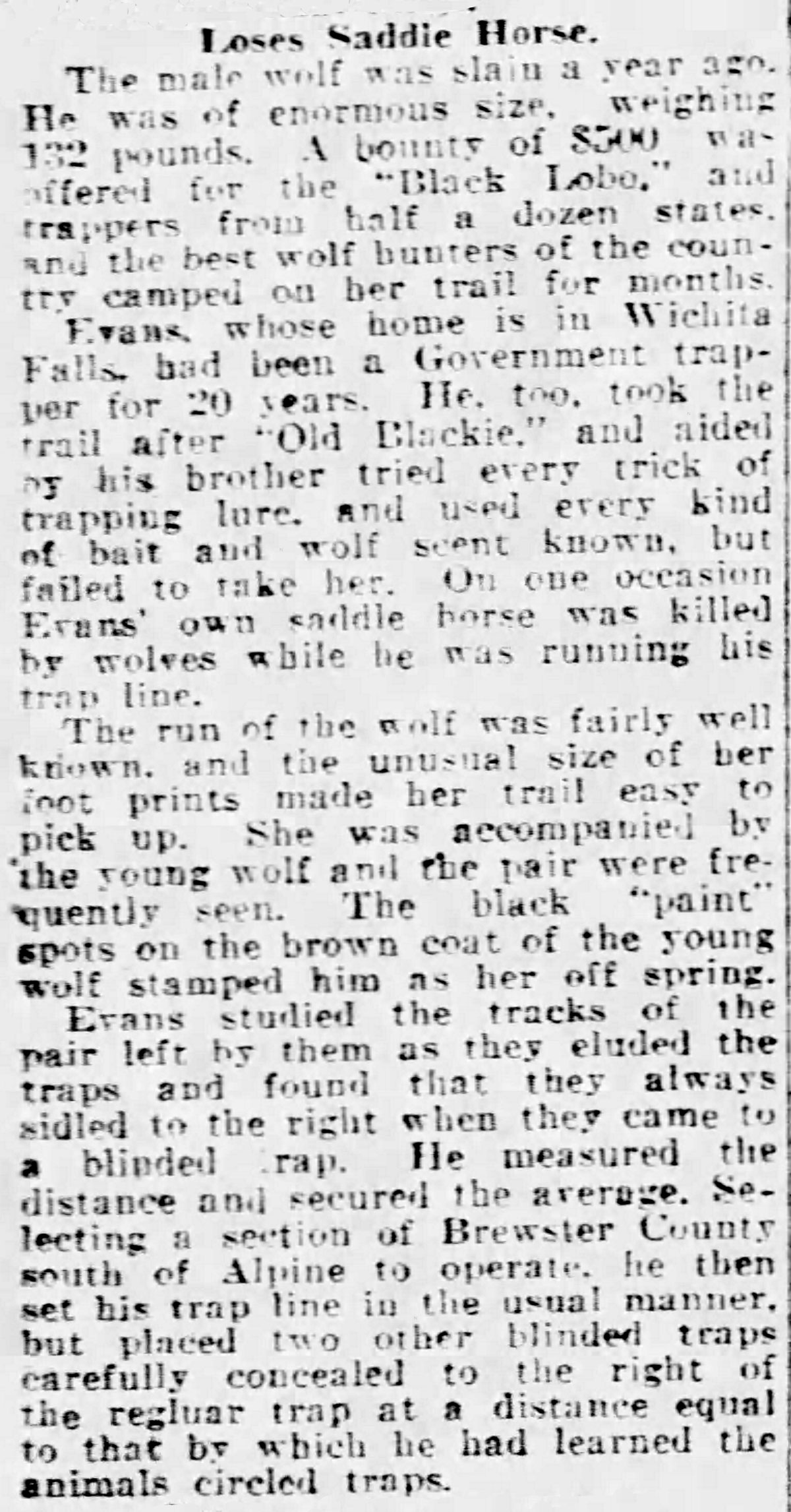
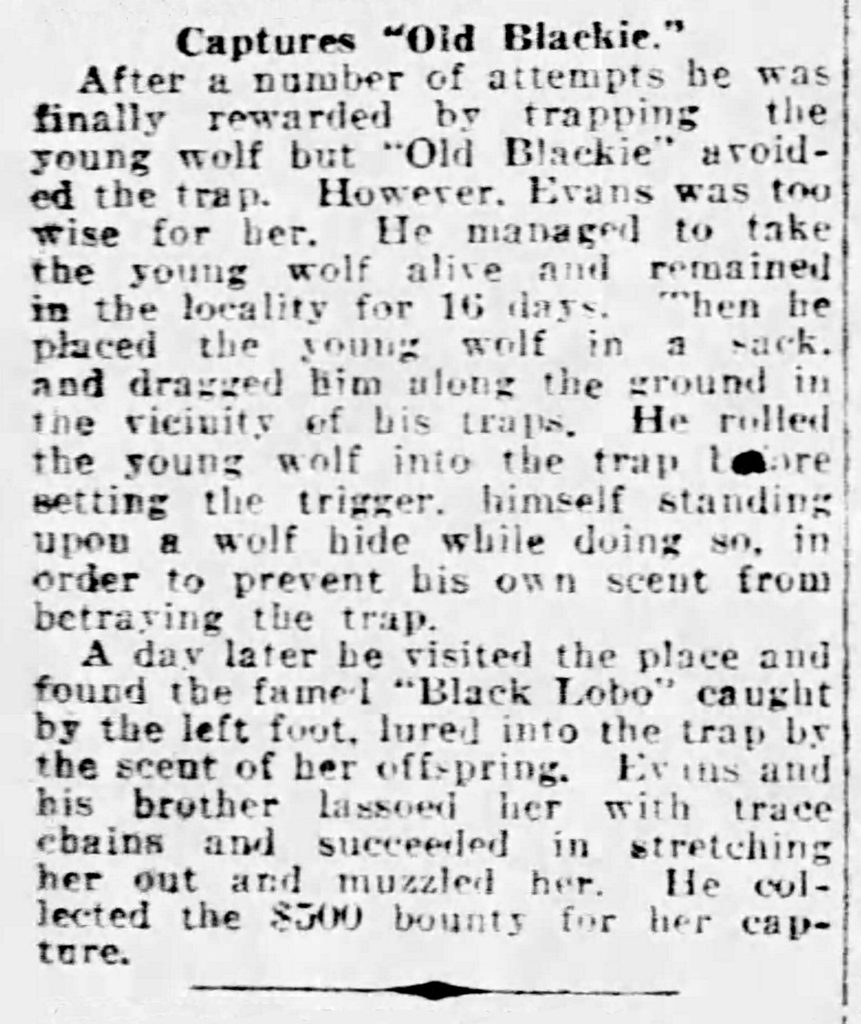
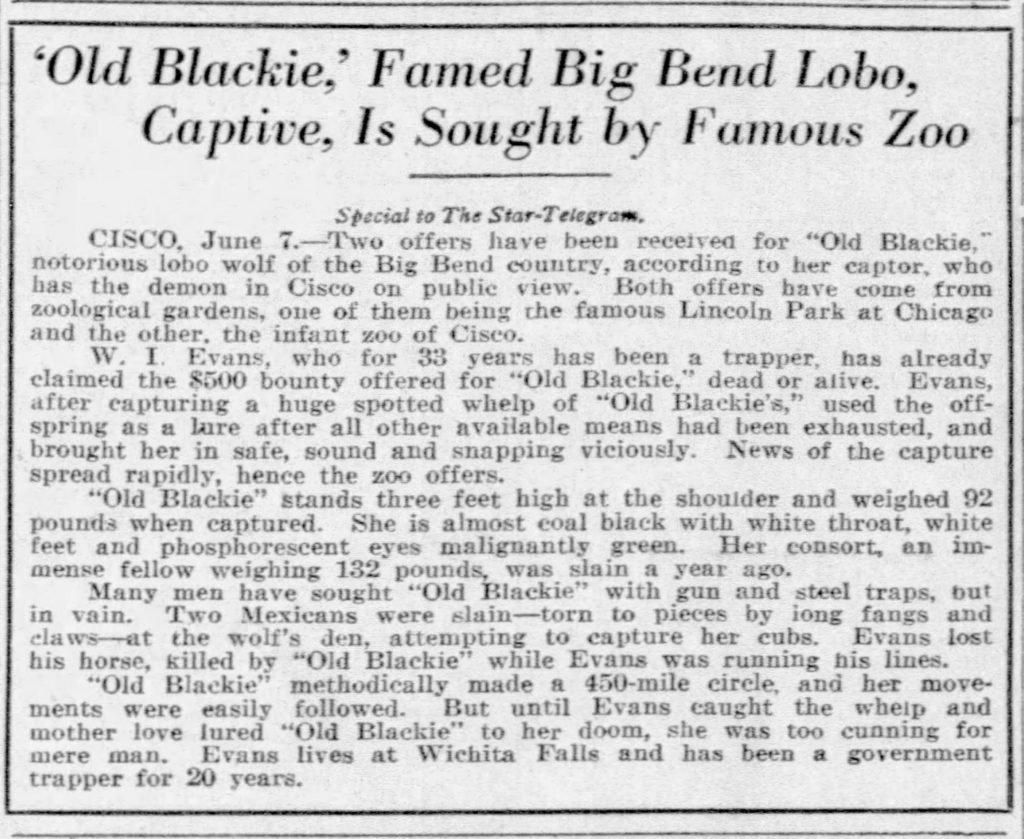
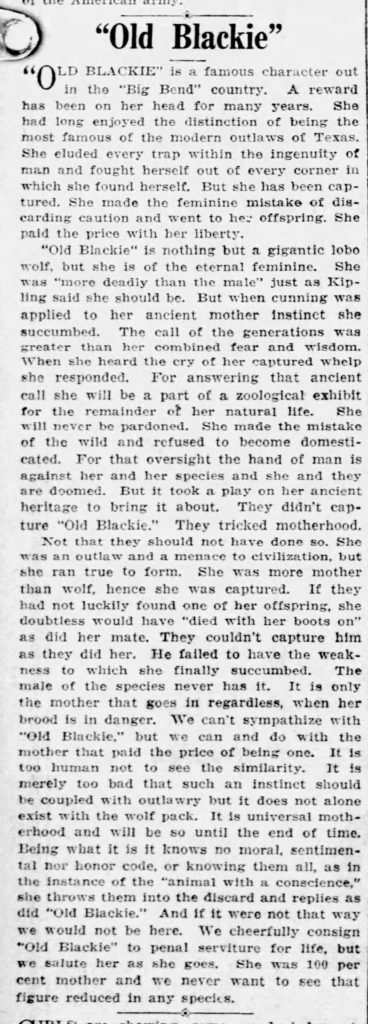
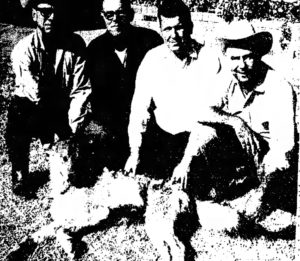
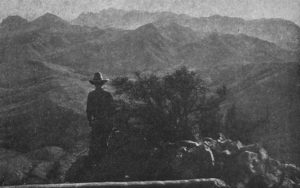
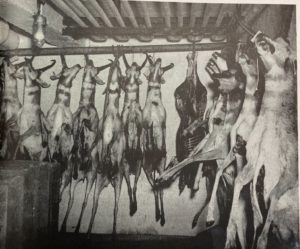
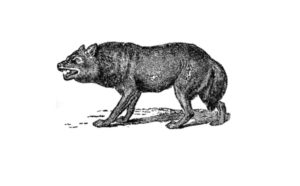
Comments are closed.